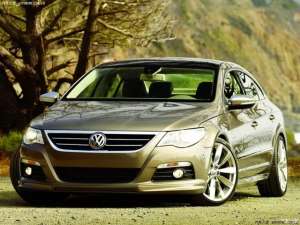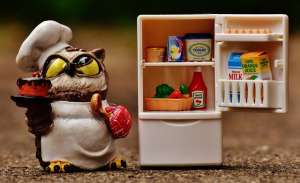cancel(canceling)
2023-06-07 富美财经 浏览量:次

考点36 祈使句
高考频度:★★★★★
一、祈使句的句式特征
祈使句常常是表达说话人对对方的劝告、叮嘱、请求或命令等。因此,祈使句中一般没有主语,但根据其句意,实际上是省略了主语you。祈使句句末用感叹号或句号,朗读时,常用降调。在表达请求或劝告时,在祈使句前或句末可加上please,以使句子的语气更加缓和或客气。祈使句一般没有时态的变化,也不能与情态动词连用。
Keep off the grass! 勿踩踏草地!
Put the boxes in the small room. 把那些盒子放到那个小房间里。
二、祈使句的肯定句式
祈使句的肯定句式一般分为以下三种类型:
1. 行为动词原形+其他成分。
Make sentences after the model. 根据例句造句。
2. Be动词+其他成分(形容词、名词或介词短语等)。
Be careful when crossing the street. 过马路时要小心。
3. Let + 宾语 + 动词原形 + 其他成分。
Let him go back now. 让他现在回去吧。
1.(2018·北京卷·单项填空) In any unsafe situation, simply _________ the button and a highly-trained agent will get you the help you need.
A. press B. to press C. pressing D. pressed
【答案】A
2.Always _______________ in mind that your main task is to get this company running smoothly.
A. to keep B. to have kept C. keep D. have kept
【参考答案】C
【名师点睛】祈使句表请求、命令、叮嘱、邀请、劝告等。祈使句分为第二人称祈使句及第—、三人称祈使句两大类。祈使句用于两个重要句型中:①"祈使句+and+表结果的陈述句"用来叙述肯定的条件;②"祈使句+or(else)+表结果的陈述句"用来叙述否定的条件,or(else)表示"否则";句首以动词原形开头。从本题的成分来判断,可以看出是考查祈使句。
三、祈使句的否定句式
祈使句的否定句式,通常情况下在句首加上Don’t或Never,一般分为以下四种类型:
1. 在祈使句的肯定句式前加Don’t,构成"Don’t+行为动词原形+其他成分"。
Don’t say that again! 别再那样说了!
2. 在Be动词引起的肯定祈使句前加Don’t,构成"Don’t be+其他成分(形容词、名词或介词短语等)"。
Don’t be careless. 不要粗心。
注意:在这种句型中be不能省略;否定副词not不可置于be之后。
3. Let引起的祈使句的否定形式有两种:(1)Let开头的祈使句,如果后面跟第一、第三人称名词或代词的宾格,可在Let前加Don’t,也可在Let后宾格的名词或代词后面加not。(2)如果以Let’s开头的祈使句,必须在Let’s后加not。
Don’t let me go with her tomorrow. =Let me not go with her tomorrow. 不要让我明天跟她一起去。
Let’s not tell her the truth whenever we meet her. 无论什么时候我们碰到她,都不要告诉她真相。
4. 在公共场合的提示语中,否定祈使句常用"No+名词/V-ing形式"结构,表示"禁止做某事"。
NO PHOTOS! 禁止拍照!
四、祈使句的反意问句
祈使句的反意疑问句须按其句子结构及讲话人的语气来决定其疑问部分。通常有以下三种形式:
1. 祈使句为肯定句式,其反意疑问句表示请求时,通常用will you;表示邀请、劝说时,用won’t you。
Be sure to write to us, will you? 你一定要给我们写信,好吗?
Come to have dinner with us this evening, won’t you? 今晚来和我们一起吃饭,好吗?
2. 祈使句为否定句式,其反意疑问句通常只用will you。
Don’t smoke in the meeting room, will you? 不要在会议室抽烟,好吗?
3. Let开头的祈使句构成反意疑问句时,除Let’s用shall we外,其他均用will you。
Let the boy go first, will you? 让个那男孩先走,好吗?
Let’s take a walk after supper, shall we? 晚饭后我们去散步,好吗?
1.We forgot to bring our tickets, but please let us enter, _________?
A.do you B. can we C. will you D. shall we
I’m sure you’d rather she went to school by bus,__________?
A. hadn’t you B. wouldn’t you C. aren’t I D. didn’t she
【参考答案】B
【答案解析】在反意疑问句中,如果主句的谓语动词是think, suppose, believe, imagine, be sure等,且主语为第一人称,简略问句仅有肯定或否定是与主句相对应,而主语和时态要与宾语从句一致。
五、祈使句的回答
祈使句的动作通常是表示将来发生的动作,所以回答祈使句时,一般用will或won’t。在回答具有否定意义的祈使句时,要注意两点:一是"形式一致",即Yes与will保持一致;No与won’t保持一致。二是"意思相反",即Yes是"不"的意思;No是"是"的意思。在回答时,要注意分析上下文语境中所提供的条件。
—Don’t go out, please. It’s raining heavily outside. 请不要出去。外面雨下得很大。
—Yes, I will. I have to meet my brother at the airport. 不行,我得去机场接我弟弟。
六、祈使句与陈述句的并列使用
祈使句后接陈述句时,须用连接词连接。如果祈使句与陈述句表示的是一种顺承关系时,要用并列连词and来连接;如果祈使句与陈述句存在一种否定条件关系时,要用并列连词or来连接。
Leave it with me and I will see what I can do. 把它留给我吧,我想想有没有办法。
Hurry up, or we’ll be late. 快点,否则我们要迟到了。
七、祈使句与条件状语从句的连用
祈使句与条件状语从句连用时,条件状语从句可置于祈使句前或后。
Tell him to make a phone call to me if he comes here tomorrow. 如果他明天来这儿的话,叫他给我来个电话。
八、祈使句的强调形式
祈使句的强调形式通常在肯定祈使句式前加上助动词Do(Do在句中无意义)。
Do shut up! 快住口!
九、特殊形式的祈使句
在英语中,有些祈使句不是以动词原形来引起一个祈使句,而是以一个名词短语来充当,且后接一个带有并列连接词的分句。实际上,这个充当祈使句的名词短语相当于一个条件状语从句。
More water and the young trees couldn’t have died. =If you had given them more water, the young trees couldn’t have died. 如果你给那些小树多浇点水的话,它们就不会死了。
__________and I’ll get the work finished.
A. Have one more hour B. One more hour
C. Given one more hour D. If I have one more hour
【参考答案】B
【答案解析】本题考查 "祈使句+and+简单句"的用法, 其中祈使句可转换成名词短语, 如One more word and I’ll beat you flat.因此B项正确。如果选C, D两项, 要去掉and。
十、运用祈使句的误区
祈使句往往容易与不定式、分词或条件状语从句相混淆。在平时的练习或测试中,如果稍不留神,就会出错。因此,要认真审题,认真分析句子结构,并根据上下文语境,作出正确判断。
_______________ your composition carefully, some spelling mistakes can be avoided.
A. Having checked B. Check
C. If you check D. To check
【参考答案】C
题组一 能力过关
I. 单项填空
1. There are a few measures you can take to improve your grade, and one of them is: ____________ the material you do poorly in.
A. doesn’t ignore B. not to ignore
C. not ignore D. don’t ignore
2. _____________ in the library, or you’ll be fined 10 dollars and banned from entering for one month.
A. If you smoke B. Not smoke
C. Not smoking D. No smoking
3. —Daddy, this is my favorite show. Could you...?
—No. _______________ before the TV set and I’ll cancel our plan to Disneyland tomorrow.
A. Have more minute B. One more minute
C. Given one more minute D. If you have one more minute
4. If you have a job, _____________ yourself to it and finally you’ll succeed.
A.do devote B. don’t devote
C. devoting D. not devoting
5. _______________ your homework before you watch TV.
A. Do B. Doing
C. To do D. Done
6. Follow your doctor’s advice, ______________ your illness will get better.
A. then B. or
C. and D. but
7. _______________ to the answer, and then you will find where your problem is.
A. To refer B. Referring
C. Referred D. Refer
8.When you’ve finished with that book, don’t forget to put it back on the shelf, ______________?
A.do you B. don’t you
C. will you D. won’t you
II.语法填空
Stephen Hawking, a great physicist, was born in Oxford in 1942. He went to school at St. Albans. After graduation, Hawking first went to Oxford University 1 he studied physics, and then he furthered his study in Cambridge University. As he 2 (honest) admitted, he didn't work hard. He was a lazy student, and he did very little work. 3 he still got good grades.
At the age of 20, he first noticed something wrong with him. His mother was very worried and took him 4 (see) a doctor. The doctor said he had 5 very serious illness and he 6 (die) before he was 23.
Hearing the news, he became very sad and 7 (disappoint). After coming out of the hospital, he came to know that nobody should lose hope. "Life is not fair, "he once said. “You just have to do the 8 (good) .” Then he conducted some of the most important scientific 9 (study) and worked at Cambridge University as a professor. His contributions 10 the world will live on for many years.
题组二 体验真题
1. (2017·新课标卷I·短文改错)I The instructor kept repeating the word(改为words), "Speed up!"
"Slow down!" "Turning left!"
2. (2016·新课标卷Ⅱ·语法填空)It could be anything — gardening, cooking, music, sports — but whatever it is, __________ (make) sure it’s a relief from daily stress rather than another thing to worry about.
题组一 能力过关
I. 单项填空
1. D
【解析】考查祈使句。句意:有一些措施可以采取来提高你的成绩,其中的一项措施就是:不要忽视你做不好的材料。祈使句的否定式:don’t/never+动词原形。
2. D
【解析】考查祈使句的否定形式:no+名词/动词-ing形式。句意:图书馆内不得吸烟,否则你将被罚款10美元,并被禁止入内一个月。No smoking"禁止吸烟"。
3. B
4. A
【解析】句意:如果你有一份工作,一定要全身心投入,你最后一定会成功的。主句是祈使句,排除C项和D项;由语境可知本句叙述的是肯定的情况,排除B项;强调谓语动词,此处要用助动词do。故选A项。
5. A
【解析】考查祈使句。句意:看电视之前要先完成你的作业。分析句子结构可知,before you watch TV是时间状语从句,所以____________ your homework是主句,主语省略,因此主句是祈使句,故谓语动词用原形。故选A。
6. C
【解析】考查"祈使句+and+陈述句"句型。句意:听从医生的建议,你的病会好的。"祈使句+and+陈述句"是固定句型,祈使句相当于if 引导的条件状语从句,根据语境,and还可以由or来代替,表达说话人对对方的叮嘱、劝告、希望、禁止、请求或命令等。故选C。
7. D
【解析】考查祈使句。句意:参考答案,然后你就会发现问题在哪里。使用祈使句+and/or+简单句的句型。故选D。
8.C
【解析】祈使句的反意疑问句一般用will you。
II.语法填空
【文章大意】本文是一篇名人传记。文章讲述了伟大的物理学家Stephen Hawking的人生经历。
1.where
【解析】考查定语从句。句意:毕业后,霍金第一次去了牛津大学学习物理,然后在剑桥大学继续深造。分析句子结构,此处Oxford University是先行词,将其带入后面的定语从句,只能做地点状语,故答案为where。
2.honestly
【解析】考查副词。admitted是动词,副词修饰动词,故答案为honestly。
3.However
【解析】考查副词。句意:他是一个懒惰的学生,他做的很少。然而,他的成绩仍然很好。其后是一种转折关系,空格后面有“逗号”,故答案为However。注意大写开头。
4.to see
【解析】考查动词不定式。句意:他妈妈非常焦虑,并带他去看医生。此处是动词不定式做目的状语,故答案为to see。
7.disappointed
【解析】考查过去词。句意:听到这个消息,他很难过并感到失望。disappointed“感到失望的”,故答案为disappointed。
8.best
【解析】考查最高级。句意:生活是不公平的。你必须做到最好。根据the可知此处用最高级,故答案为best。
9.studies
【解析】考查名词。句意:然后他进行了一些最重要的科学研究,并在剑桥大学当教授。形容词修饰名词,结合句意此处应该用名词的复数形式,故答案为studies。
10.to
【解析】考查固定搭配。句意:他对世界的贡献将持续许多年。contributions to---,对---的贡献,故答案为to。
题组二 体验真题
1.Turning改为Turn
【解析】分析语境可知教练的话"加速","减速","左转"都是祈使句,根据前文"Speed up!" "Slow down!"也可以看得出来。祈使句应该用动词原形,故将Turning改为Turn。
2.make
感谢阅读,未完待续。获取完整电子文档:关注+私信。

-
-
大众cc汽车报价(二手车:6缸+四驱,无框车门巨拉风,进口中型车大众CC仅卖11万)
早年间,帕萨特一直与奥迪共用底盘,而从B6车型开始使用大众集团所开发的...

- 汽车新闻 2024-05-21
-
大众cc汽车报价(二手车:6缸+四驱,无框车门巨拉风,进口中型车大众CC仅卖11万)
-
-
裕隆汽车金融车贷查询(调查丨你的车贷还了吗?疫情之下,还贷逾期率上升,汽车金融行业洗牌加速)
每经记者:孙桐桐 每经编辑:张北图片来源:摄图网2020年开局之际,新冠肺...

- 汽车新闻 2024-05-21
-
裕隆汽车金融车贷查询(调查丨你的车贷还了吗?疫情之下,还贷逾期率上升,汽车金融行业洗牌加速)
-
-
汽车加冰箱(车上装一个冰箱,是什么样的体验?)
如果车上有一个方便的冰箱,那么出行的体验肯定大不一样。其实房车、卡车...

- 汽车新闻 2024-05-21
-
汽车加冰箱(车上装一个冰箱,是什么样的体验?)
-
-
绵阳到简阳汽车时刻表(最新绵阳客运班线恢复情况来了)
今天(2.18),记者向绵阳汽车总站、绵阳平政客运站、南湖客运站、富乐汽...

- 汽车新闻 2024-05-21
-
绵阳到简阳汽车时刻表(最新绵阳客运班线恢复情况来了)
-
-
宜宾到雷波汽车时刻表(好消息连接四川宜宾与西昌,宜西高铁拟启动可行性研究)
5月16日,红星新闻从四川政府采购网获悉,5月11日,凉山州发展和改革委员会...

- 汽车新闻 2024-05-21
-
宜宾到雷波汽车时刻表(好消息连接四川宜宾与西昌,宜西高铁拟启动可行性研究)
-
-
吴江到睢宁汽车时刻表(苏州再增30条市际班线)
好消息!明天(23日)汽车南站正式营业!硕放机场线也将正式运营!苏州大...

- 汽车新闻 2024-05-21
-
吴江到睢宁汽车时刻表(苏州再增30条市际班线)
